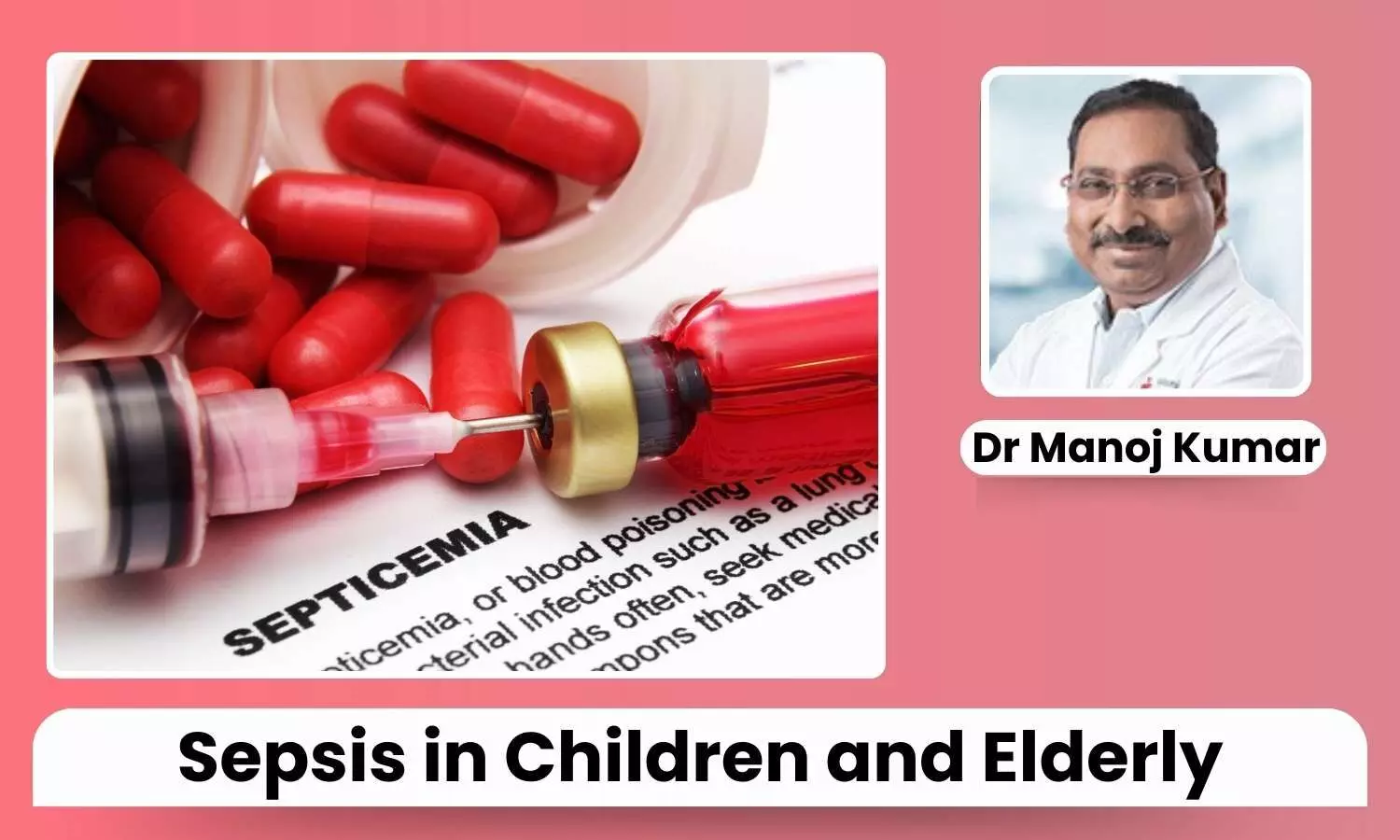Sepsis in Children and Elderly: Why They Are at Higher Risk - Dr Manoj Kumar CH

When the immune system reacts too strongly to an infection, it creates excessive tissue damage and puts organs at risk of failing and killing the patient.
Older adults and children are more likely than other people to develop sepsis. These age groups have important medical conditions that increase their risk from sepsis problems.
Sepsis and Its Impact
The immune system overreacts to infection by sending too many inflammation chemicals into the bloodstream to create sepsis. When the immune system overreacts, it creates blood flow disruptions and organ damage, which can lead to death.
Every year, millions of people worldwide experience sepsis, which poses a major health problem. Current medical advances fail to ease the heavy burden sepsis places on healthcare systems that treat sick patients.
Why are Children more Susceptible to Sepsis?
Children, especially neonates and infants, are at increased risk of developing sepsis due to several factors:
- Immature Immune Systems: Newborns and young children need strong immune protection because their bodies are still developing. Their weak immune system defence makes them prone to serious infections like bacterial meningitis, pneumonia, and bloodstream diseases.
- Non-Specific Symptoms: Children with sepsis usually show signs of low energy and poor feeding, along with fever and irritability. These small early symptoms often hide the condition, which allows it to develop further before getting diagnosed.
- Higher Exposure to Infections: Children get exposed to disease-causing germs daily at their school, day-care, and during basic medical treatments including vaccinations. Premature babies need special care because they stay longer in hospitals and need medical equipment such as central lines and ventilators, which make them more susceptible to infections.
- Delayed Recognition: Healthcare providers and caregivers tend to miss the early signs of sepsis because they mistake them for normal child health problems, which delays needed treatment. Doctors must watch children closely and begin treating sepsis promptly because it progresses rapidly.
How does elderly at Risk?
Health problems and reduced immune defences increase sepsis risk as people grow older. Key factors contributing to their vulnerability include:
- Weakened Immune Function: The immune system of older adults weakens naturally as they grow older through immunosenescence. When their immune response weakens, older adults become more likely to develop sepsis because their bodies cannot fight off infections well.
- Chronic Health Conditions: People over 65 years old develop diabetes more often alongside heart disease, plus chronic kidney disease and lung problems. These medical conditions increase the risk for infections and complicate the treatment of sepsis.
- Atypical Presentation: Sepsis symptoms in older adults appear as confusion rather than fever and fast heart rate, alongside physical weakness and falls. Treating sepsis becomes harder when doctors need to diagnose the condition sooner.
- Frequent Healthcare Exposure: When older patients get medical treatment in hospitals, they develop more harmful infections that put them at greater risk for sepsis.
Strategies for Prevention and Early Detection
Healthcare providers need special sepsis protection strategies because children and seniors face higher risks of this condition
- Vaccination: The full vaccination schedule for S. pneumonia, Haemophilus influenza, and influenza protects older adults and children from developing sepsis caused by these pathogens.
- Prompt Recognition and Treatment: Healthcare teams must receive training to spot sepsis symptoms, including changes in temperature mental status and breathing speed.
- Good Hygiene Practices: People become less likely to develop infections when healthcare teams and families practice better hand hygiene while treating wounds correctly.
- Routine Health Screenings: Routine doctor visits can help control ongoing health problems and find infections before they become severe.
Sepsis presents a significant danger to both young and old populations because they have special risks. Timely detection and effective medical care help protect patients from serious health problems.
The growing number of elderly people combined with ongoing childhood infections make sepsis research and prevention training crucial to help society.


